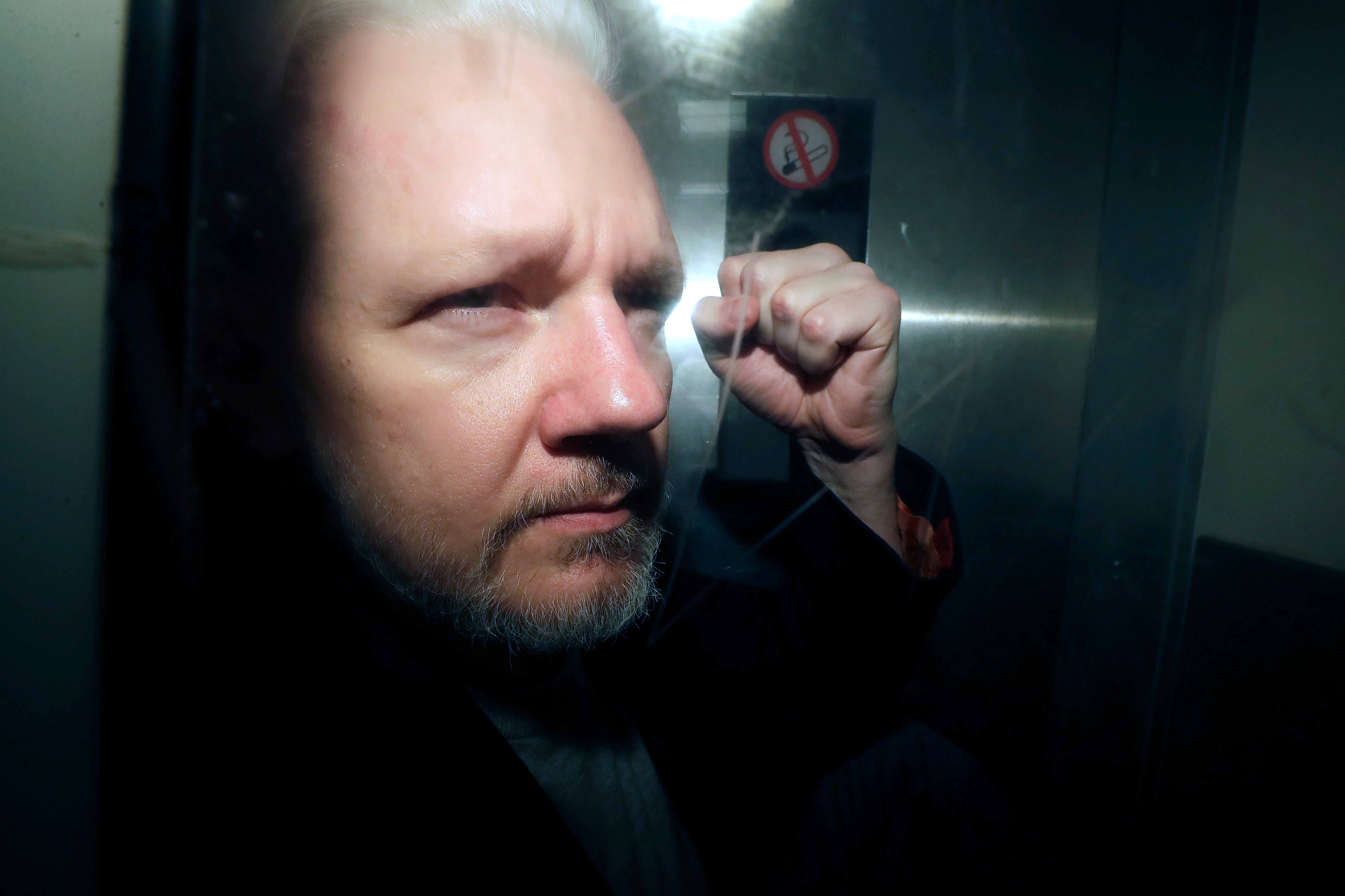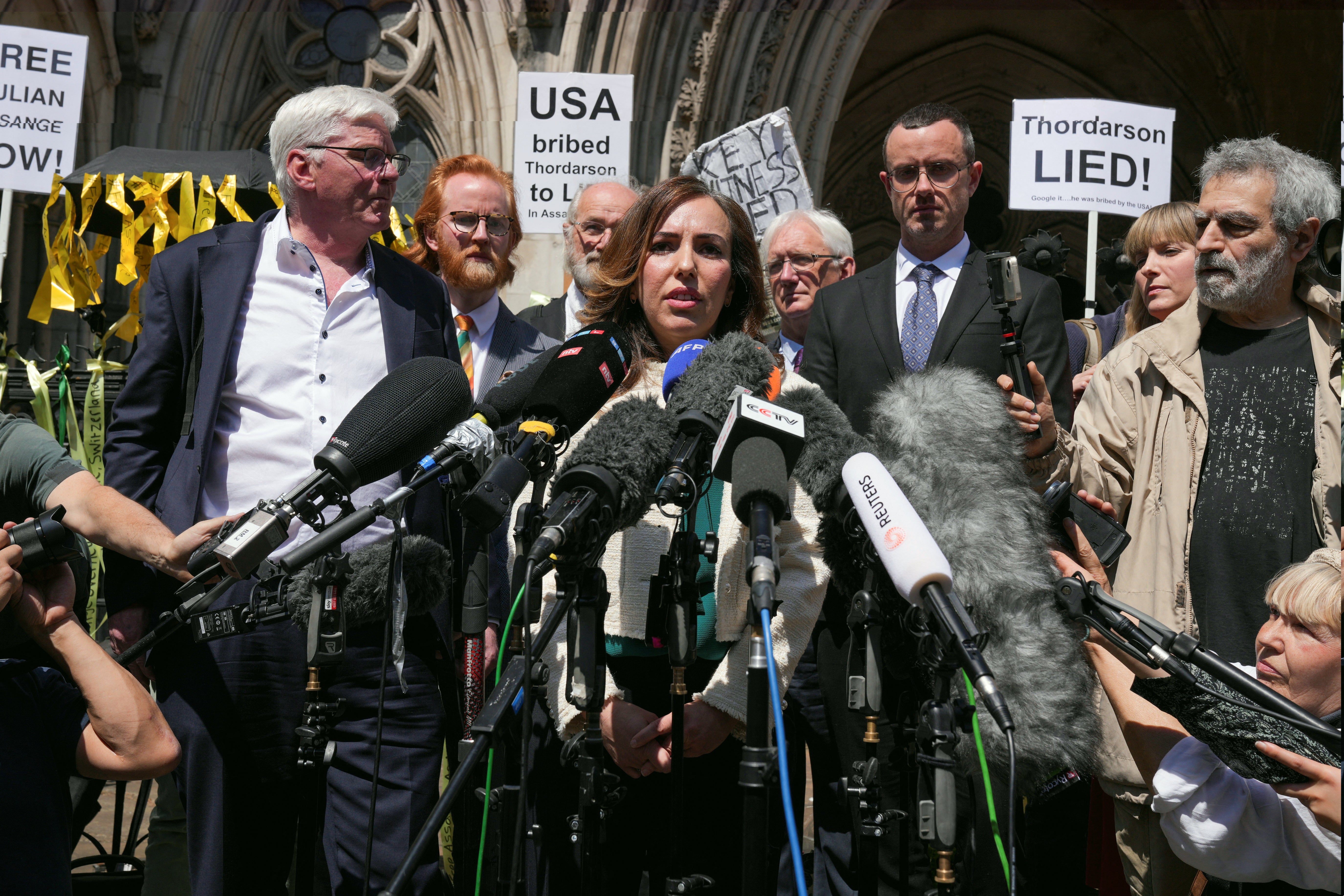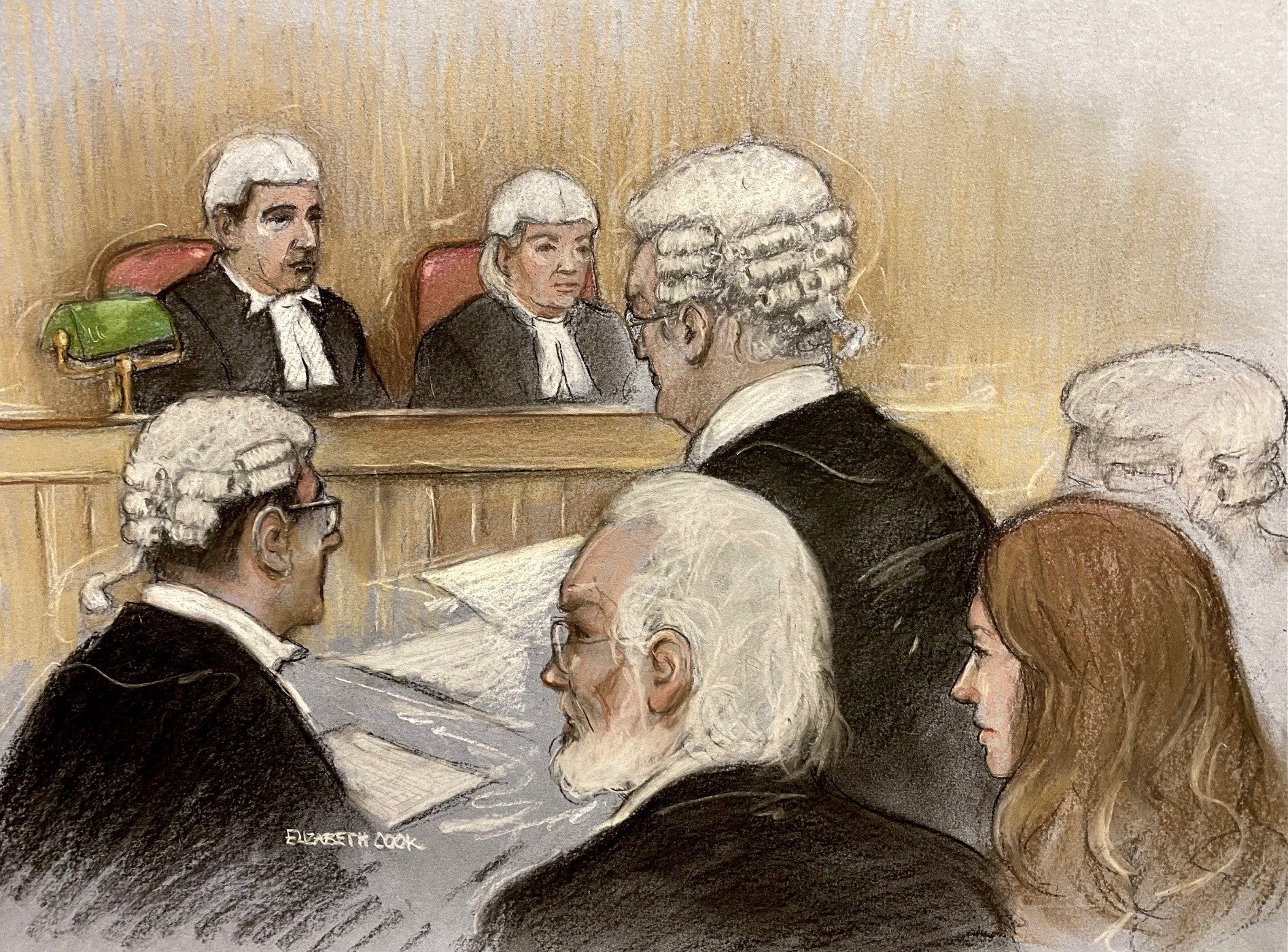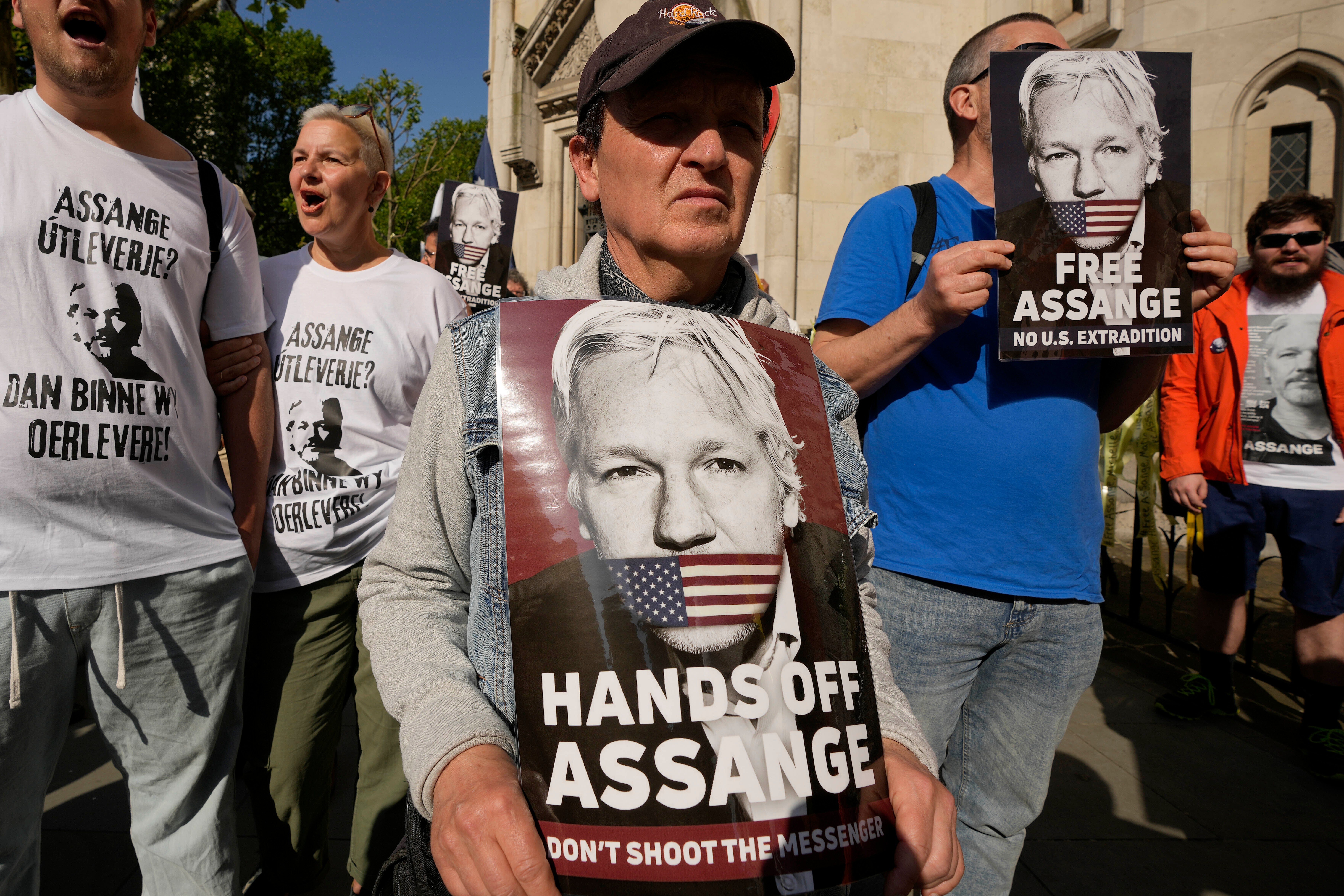
WikiLeaks founder Julian Assange has won a last-ditch bid to appeal his extradition to the United States to face espionage charges.
High Court judges on Monday granted him permission to appeal his removal to the US where he is being prosecuted over an alleged conspiracy to obtain and disclose national defence information over the publication of hundreds of thousands of leaked documents on the Afghanistan and Iraq wars.
The decision has granted the 52-year-old a reprieve in order for lawyers to challenge his extradition at a full appeal hearing at a later date.
It was feared he could have been put on a plane within days if his bid was denied. However, his legal team had vowed to apply to the European Court of Human Rights for an emergency injunction to halt his removal if they were unsuccessful.

Members of Mr Assange’s legal team and family, including his wife Stella Assange and his father John Shipton, could be seen embracing after the ruling.
Hundreds of supporters gathered outside the Royal Courts of Justice for the crunch hearing on Monday, with cheers erupting after the judgment was handed down.
Addressing crowds Ms Assange accused the US of “fumbling through their arguments” and “trying to paint lipstick on a pig”, adding: “Today marks a turning point.”
“Julian must be freed. The case should be abandoned. He should be compensated,” she told supporters.
“He should be given the Nobel Prize and he should walk freely with the sand beneath his feet. He should be able to swim in the sea again. Free Assange.”

The victory comes after lawyers for the Australian-born publisher, who is being held at high security prison HMP Belmarsh, asked for the go-ahead to challenge a previous ruling over his extradition in a two-day hearing in February.
His team claim that he could face up to 175 years in prison if he is convicted of publishing hundreds of thousands of leaked documents and argue that the decision to prosecute him is “state retaliation” for his political views.
Last month Dame Victoria Sharp and Mr Justice Johnson dismissed most of Mr Assange’s legal arguments but said that unless assurances were given by the US he would be able to bring an appeal on three grounds.
These assurances were that Mr Assange would be protected by and allowed to rely on the first amendment – which protects freedom of speech in the US – that he is not “prejudiced at trial” due to his nationality, and that the death penalty is not imposed.
Judges later confirmed the US had provided an assurance to the court, however Ms Assange dismissed the promises as “blatant weasel words”.

Edward Fitzgerald KC, representing Mr Assange in the latest hearing, accepted a promise that he would not face the death penalty but insisted other assurances provided by the US were “blatantly inadequate”.
On the issue of whether he would be prejudiced by reason of his nationality or use the first amendment as a defence at trial, Mr Fitzgerald said: “This is not an assurance at all. It assures only that Mr Assange ‘may seek to’ raise the first amendment.”
He added: “What needs to be conclusively removed is the risk that he will be prevented from relying on the first amendment on grounds of nationality.”
However James Lewis KC, for the US government, insisted that Mr Assange’s conduct was “simply unprotected” by the first amendment.
In written submissions, Mr Lewis said: “The position of the US prosecutor is that no-one, neither US citizens nor foreign citizens, are entitled to rely on the first amendment in relation to publication of illegally obtained national defence information giving the names of innocent sources to their grave and imminent risk of harm.”
At the hearing on Monday, the two judges granted Mr Assange permission to appeal over the freedom of speech and nationality points.
Mr Assange was not present at the hearing in London, with his barrister telling the court that “for health reasons, he has decided not” to attend.

In February Mark Summers and Mr Fitzgerald, for Mr Assange, had argued that the US was trying to suppress those who were “willing and prepared” to hold officials to account for alleged wrongdoing during the “war on terror”. “Mr Assange was one of those targets,” they said.
However, lawyers for the US said Mr Assange had put lives at imminent risk by publishing the names of those who had helped the country in unredacted classified documents in “one of the largest compromises of classified information in the history of the United States”.
“These were documents that disclosed to the world the unredacted names of human sources who had provided information to the US,” Clair Dobbin KC told the court, adding that this separates Mr Assange from The New York Times and other news outlets, which also published information exposed by WikiLeaks.
Ms Assange previously warned that the outcome of the appeal bid is life or death for her husband – whose health has deteriorated in prison, where he spends 22 hours a day in confinement. He has been in prison since he was removed from the Ecuadorian embassy in 2019.
Following the victory on Monday she said the case was “taking an enormous toll on Julian” and that he had been in Belmarsh Prison in southeast London for over five years.
She continued: “We are relieved as a family that the courts took the right decision today but how long can this go on for?”







